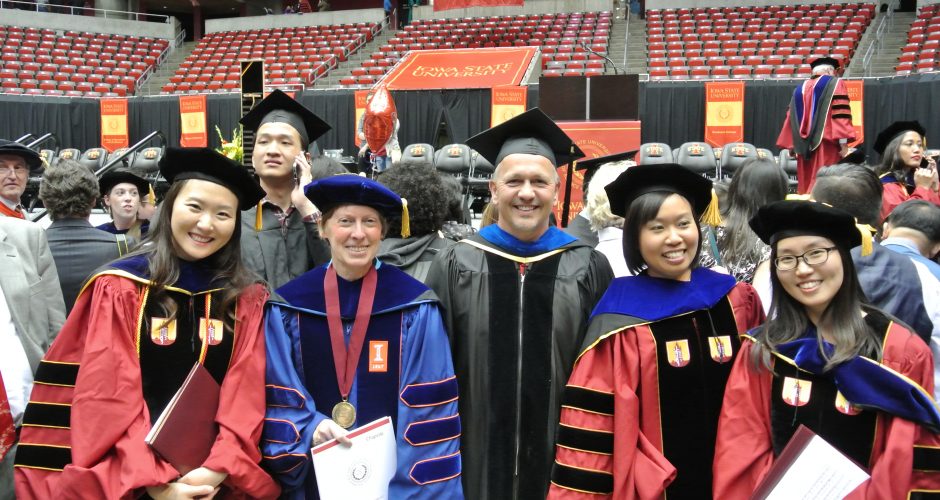Career planning and preparation
Looking for help in putting together the perfect resume or cover letter? Or maybe you are looking for an internship or even some mock interviews for an upcoming job? LAS Career Services and Graduate college Career Services can help you with all of these and more.
Career outlooks
English
An English degree from Iowa State University will give you a solid foundation for a wide variety of career paths. Graduates can aim for the traditional options such as creative writing, publishing, or teaching English, but students should not feel limited by these areas. Many career options do not require a specific major; instead, they simply require that the student has demonstrated proficiency in a range of skills and accomplishments.
English majors will graduate with well-developed critical thinking skills, analytical skills, skills in writing and argumentation, expanded levels of creativity, and the ability to express their ideas concisely.
In an age of technology and information, these skills are in high demand in the workplace. Students finishing within this department will find that they have substantially increased their own marketability to an incredibly broad array of work environments and career choices.
Many students within this major will end up specializing in English Education and go on to become teachers. One of our former English graduates, Sarah Brown Wessling, even went on to become the National Teacher of the Year in 2010.
Other recent graduates have moved on to become editors and published writers on a wide variety of topics. Still other students have used a major in English as preparation for advanced degrees in areas such as business or law; however, there is a much broader need for English majors in the job market today.
Linguistics
Careers for linguistics majors can include language teaching and other education areas, speech pathology, translation or a variety of other in-demand careers. A growing need for linguistics graduates are also needed in the field of artificial intelligence and other technology-related careers using human speech and computer interaction.
Technical Communication
The wide-range of practical and theoretical skills developed by students in this profession provides graduates a great deal of flexibility and opportunity in choosing a career path. These careers can include technical writers, web developers, operational research analysts, survey researchers, and market research analysts.
A career in the making
Most people will change jobs and careers several times during their lifetimes. People who have the ability to speak and write well, can immerse themselves comfortably in complex problems, apply critical and analytical skills effectively, and understand the diversity of human nature are going to be people who will have an edge in the job market. These are all skills that English majors develop through classes in writing and speaking, literature (which exposes students to complex problems and the diversity of human nature), argumentation, and linguistics. Businesses are often looking for people with the skills of English majors. According to CNN Money, “The verbal and written communication skills that English majors possess remain in top demand at nearly every company in America” (see http://money.cnn.com).
Here are some examples of types of jobs held by English majors*:


